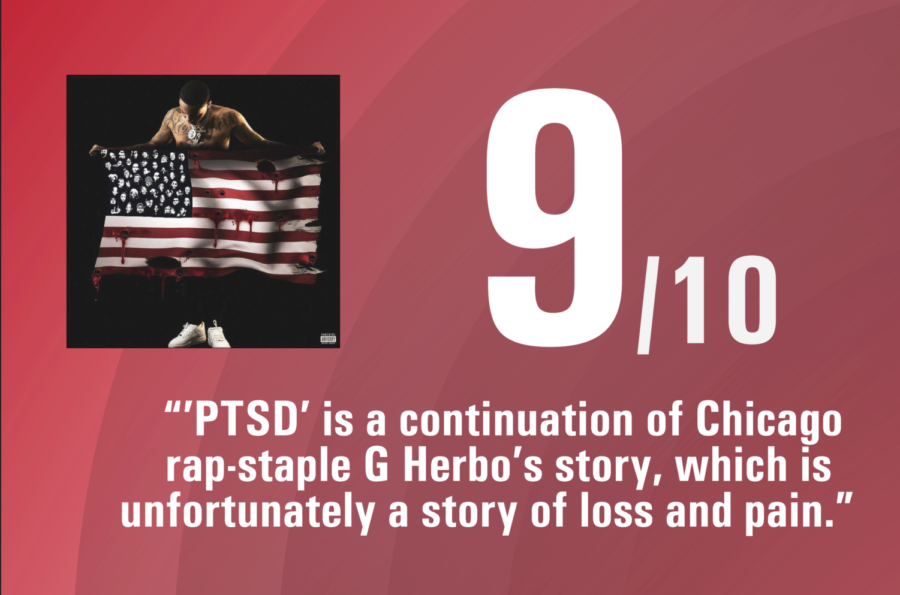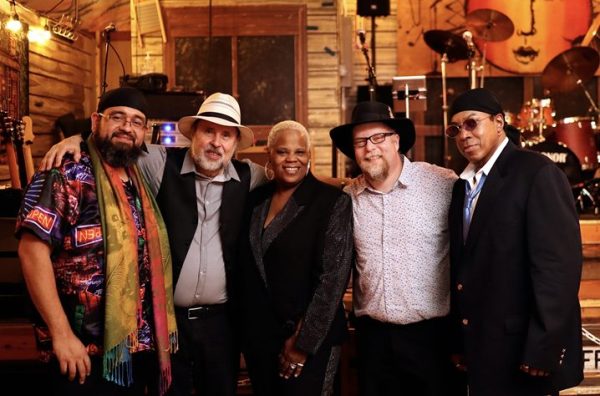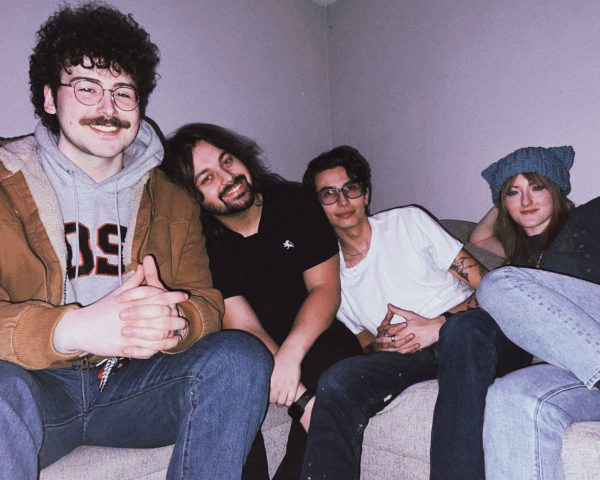Review: G Herbo paints a storied picture of his life and career on ‘PTSD’
March 26, 2020
G Herbo has been a hometown hero since he and Lil Bibby dropped “Kill Shit” back in 2012, a song many Chicago natives can still recite word for word.
Back when he was known as “Lil Herb,” he and Lil Bibby were the Chicago rap equivalent of Steph Curry and Klay Thompson. As G Herbo began to drop more and more solo music it became apparent that he was no longer the skinny kid wearing a White Sox hat, he became something more.
The transition from Lil Herb to G Herbo came with numerous mixtapes and albums that had the youth of Chicago dancing and shouting for nearly a decade.
G Herbo has always had a very specific type of storytelling flow that is almost immediately recognizable for many who grew up in the inner city. G Herbo not only told his story, but theirs as well. Over years of consistent success, he became a staple in the Chicago rap game similar to Chief Keef or Lil Durk.
His latest release, “PTSD,” is a continuation of his story, unfortunately a story of loss and pain. For anyone that has listened to G Herbo over the years, it is well known that he’s always shouting out his fallen brethren. His shoutouts are a part of his true-to-the-streets style, which can go unnoticed to people who aren’t from the city.
“PTSD” is G Herbo sharing how living the real street life can give you a form of post-traumatic stress disorder similar to soldiers who fight wars overseas and come back with significant mental damage. But for those living in the hood who are really involved in the streets of inner-city Chicago, they don’t have to get on a boat or plane to go fight for their life and protect those they care about. For these people, fighting for their life begins when they step onto their front porch and many of them don’t make it out. To quote another Chicago rapper, King Louie, “Stay inside or get fired up, to live and die in Chicago.”
The album’s cover art gives the listener a great idea of the album’s theme, featuring G Herbo holding up an American flag with bullet holes across the red stripes. Instead of stars for the 13 original colonies, the faces of his dead friends are displayed. Among the many faces on the cover is Jarad Anthony Higgins, better known as Juice WRLD, who passed away in December from a drug overdose.
While the album has a pretty gloomy theme, he talks about many other hot button issues such as drug addiction, depression, his young son and his relationship with the child’s mother.
The song “Glass in the Face” is run over a piano beat that has a heavy base with a chorus that is undertoned with piano keys and light violin strings. The content of the song is about how a real street dude makes it day by day, talking about how his financial success doesn’t mean that he has switched up and forgot about his roots. He reminisces about his days of being another broke street kid dreaming of the success he has now. Honestly, a good part of this song is flexing, but it’s done pretty well.
“By Any Means” goes over a big band jazz beat that emphasizes the trumpet. This song is about how young street dudes have to do whatever it takes to not only survive, but to make money as well. G Herbo reflects on his struggle and praises his current state of success, making a point of how he is self-made and had to grind hard to get where he is now. 21 Savage’s verse is about him making the same type of come up, while also acknowledging that he is very much still involved with the street life and that the two parts of his life don’t exactly coexist very well.
On “Intro,” G Herbo spits street knowledge, starting by telling the story of the stereotypical hood dude from Chicago and how he grows up. He talks about the things he’s seen and talks about how hard it can truly be to grow up from a baby to an adult surrounded by violence, aggression, neglect, scammers, finessers and more.

















